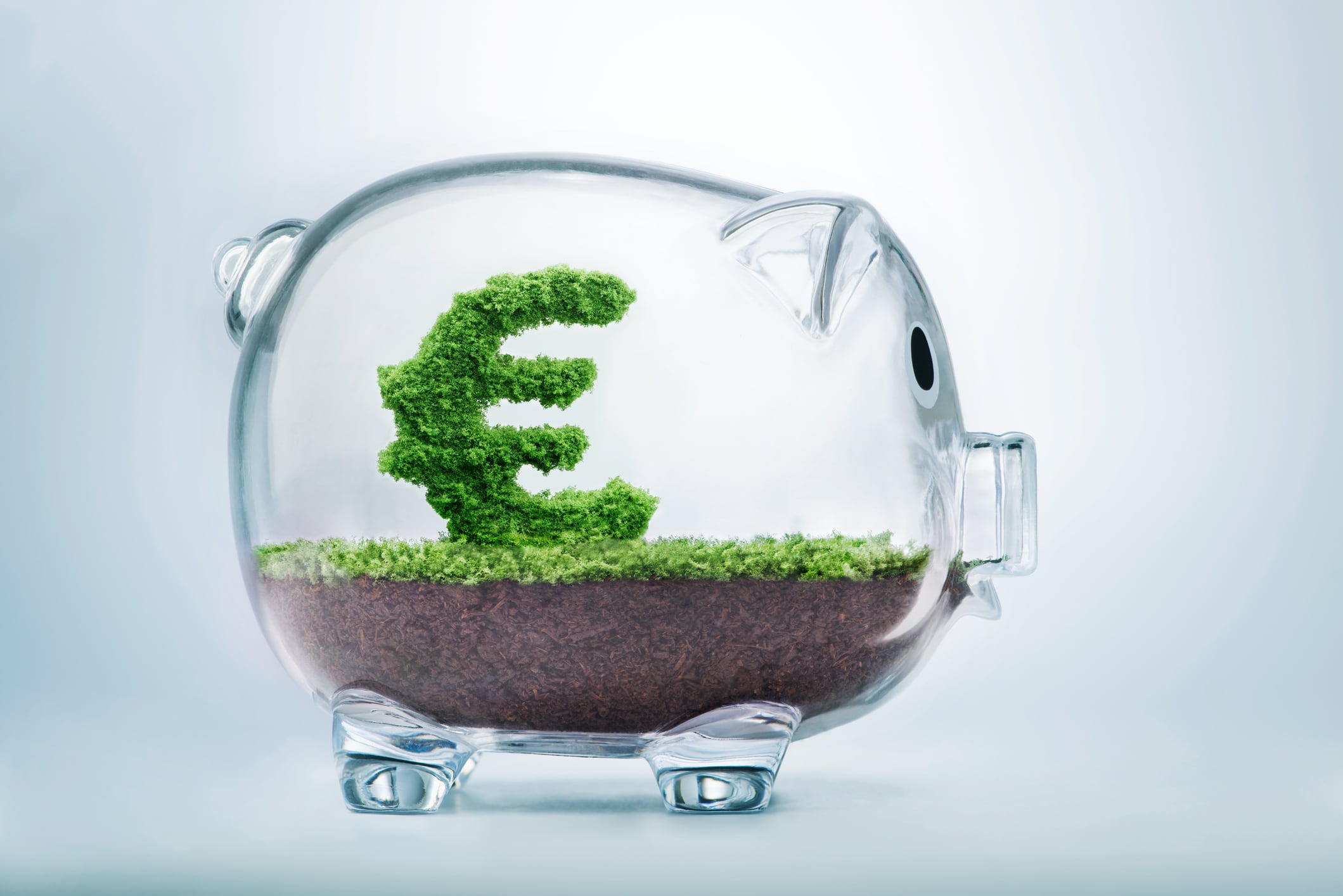Quick bites
- Simplification of EU due diligence and reporting legislation has sparked fears of a move away from sustainability.
- Elsewhere, the EUDR has faced delays and pushback in Parliament.
- The EU has become more concerned with competitiveness in recent years, especially following the Draghi report.
- It also aims to reduce administrative burdens for smaller companies.
Sustainability has been the core of EU policy for some time now. In both food and agriculture, the bloc has aimed to promote more sustainable practices through its multi-sectoral agendas.
Such policies have been highly relevant to the food sector, whose complex supply chains are a major contributor to climate change.
Over the past year, however, several sustainability regulations have been streamlined and simplified, while pushback against measures such as the EUDR have intensified.
Are these events part of a trend? Could we be seeing a pivot away from sustainability?
Streamlining and simplification
The EU is currently aiming to simplify a range of key regulations, including sustainability regulations, which it claims will ease the administrative burden on smaller businesses.
Earlier this year the Commission announced simplifications to two pieces of legislation, the Corporate Sustainability Due Diligence Directive (CSDDD) and the Corporate Sustainability Reporting Directive (CSRD), with the aim at saving businesses an annual €6.3bn in administrative costs.
The aim of the CSDDD is to ensure that businesses perform due diligence on their supply chains, in reference to sustainability and human rights, while the purpose of the CSRD is to enhance and standardise sustainability reporting.
Under the changes announced to the CSRD, 80% of companies would be removed from its scope, which will be reoriented to focus more on larger businesses. Meanwhile, the scope of the CSDDD would be narrowed to “direct” business partners rather than the entire supply chain.
In food and beverage, many of the most significant sustainability considerations happen further down the supply chain, where activities such as deforestation occur.
Some have criticised these changes, with the World Wildlife Fund (WWF) describing them as “a reckless proposal that would destroy the EU’s corporate sustainability reporting and due diligence framework”. Others, such as law firm Paul Hastings, see it as “simplification, not deregulation”. The law firm has suggested that “we still have a strict and mandatory corporate sustainability reporting regime” after the changes are made.
Simplifications have occurred in other areas as well. Last month, an EU spokesperson announced that the Green Claims Directive, a piece of anti-greenwashing legislation, was being withdrawn. While the EU eventually clarified that the legislation was not, in fact, withdrawn, it suggested that it could be if microenterprises were not removed from its scope.
There may be more simplification to come. In its Vision for Agriculture and Food earlier this year, the Commission promised farmers more easing of the regulatory burden, including that relating to sustainability.
European Green Deal
The European Green Deal, approved in 2020, is a group of policy initiatives proposed under the EU Parliament that existed prior to the 2024 Parliamentary elections. It set ambitious goals, such as making Europe “climate-neutral” by 2050, reducing greenhouse gas emissions by 55% by 2030 (compared to 1990 levels), and planting three billion trees.
Pushback on the EUDR
Deforestation is also under the microscope, with significant pushback being seen against the upcoming EUDR. The EUDR regulates seven key agricultural products – soy, palm oil, cocoa, coffee, wood, rubber and cattle – to ensure imports into the EU are not linked to deforestation.
Following a year’s delay, the deforestation regulation has again been the subject of attention in Parliament, which recently voted to reject the EUDR’s country benchmarking system in its current form.
The system, which classifies the world’s countries by level of risk of deforestation, currently has three risk levels – low, standard, and high risk. The Parliament, however, wants to add another level – no risk, or negligible risk. In fact, two thirds of the EU’s agriculture ministers are in favour of introducing such a category.
While the vote is non-binding, it signals the presence of significant pressure within the EU to reduce the stringency of the regulation.
 The EUDR aims to prevent commodities linked to deforestation being imported into the EU. (Justin Paget/Getty Images)Is sustainability still a priority?
The EUDR aims to prevent commodities linked to deforestation being imported into the EU. (Justin Paget/Getty Images)Is sustainability still a priority?
While in isolation, these events may not suggest a change in the EU’s outlook, together, it’s hard not to see a trend. So is the EU turning away from sustainability?
It is certainly pursuing an agenda of simplification, says Thomas Delille, partner at law firm Squire Patton Boggs. “No one would have bet on such an agenda two years ago.”
Previously, the EU was squarely focused on green policies, he explains. The goals set out by the European Green Deal were highly ambitious, yet “highly polarising”, and over time the EU began to realise it was becoming less competitive in part due to a heavy regulatory burden.
It had, he suggests, believed in the “Brussels effect”, the idea that EU regulations will become global standards due to the attractiveness of the European market. Eventually, it realised that this no longer held true.
Public opinion was also growing against sustainability regulations, notably in the form of farmer protests in many European countries.
Nevertheless, he stresses that he does not believe the EU is “shifting away” from sustainability, as standards were so high in the first place, but the simplification is rather a “fine-tuning exercise” to make regulations more “realistic”.
Draghi Report
The Draghi Report , written by economist and former Italian PM Mario Draghi and released in 2024, aimed to explore ways of enhancing European competitiveness. Innovation, the report suggested, was being stifled by restrictive regulation.
In particular, it highlighted sustainability reporting and due diligence frameworks as significant regulatory burdens on businesses. Draghi cites these as not differentiating enough between smaller and larger companies.
Thomas Delille of Squire Patton Boggs calls the report an “awakening exercise” on EU competitiveness.
Things have also began to shift because the EU now has priorities beyond sustainability, suggests Peter Sellar, another partner at Squire Patton Boggs.
Disruptions in the global markets caused by the war in Ukraine and the policies of US President Donald Trump have necessitated a focus on the areas of defence and energy self-sufficiency, the latter of which is included as a priority in the Draghi report.
Sellar stresses that the focus has not been taken “away from” climate policy – this is simply no longer the EU’s sole focus.
“We’re not going as fast as we were, but it doesn’t mean that we’re not going to get there.”
Even without these priorities, he suggests, the EU may have been overestimating what it could achieve through regulation. “We probably were biting off more than we could chew.”
Prioritising smaller businesses
Many of the changes seen here have been implemented, according to European lawmakers, in order to protect smaller businesses from being overburdened by regulation.
The changes made to regulations such as the CSRD and CSDDD are simply “economical adjustments” aiming to help smaller companies, suggests Katia Merten-Lentz, partner and Food Law Science and Partners. Their overall sustainability goals are still unchanged.
“These developments are on a short term while the EU sustainability strategy stays on a long term vision.”
 According to some lawmakers, the simplifications aim to ease administrative burden for small business. (Pogonici/Getty Images)
According to some lawmakers, the simplifications aim to ease administrative burden for small business. (Pogonici/Getty Images)
Due diligence and reporting obligations, she suggests, are seen as burdensome by business, especially within the current global context.
The simplification “aims to better rebalance any ‘sustainable’ duties between large and smaller companies.
“The objective is to ensure that those with the greatest environmental and social impacts remain compliant, while avoiding overburdening small businesses with administrative requirements they may not have the capacity to meet.”
In short, sustainability must be considered alongside competitiveness.
Judith Houston, senior associate at law firm Mills and Reeve, agrees. “In response to political and industry concerns about complexity and disproportionate compliance costs, particularly for SMEs, the EU is shifting towards a more risk-based and proportionate framework.”
Changes to the CSRD and Green Claims Directive, she suggests, represent a “strategic pivot” on environmental goals, in order to make compliance easier for SMEs.
This is particularly relevant in food and beverage. “Many small producers and processors have struggled with the administrative demands of ESG compliance. The EU’s Vision for Agriculture and Food reinforces this direction, calling for simplified rules, reduced reporting burdens, and continued support for voluntary sustainability schemes.
“The aim is to make sustainability proportionate and achievable, while preserving core environmental objectives and supporting competitiveness across the agri-food value chain.”
